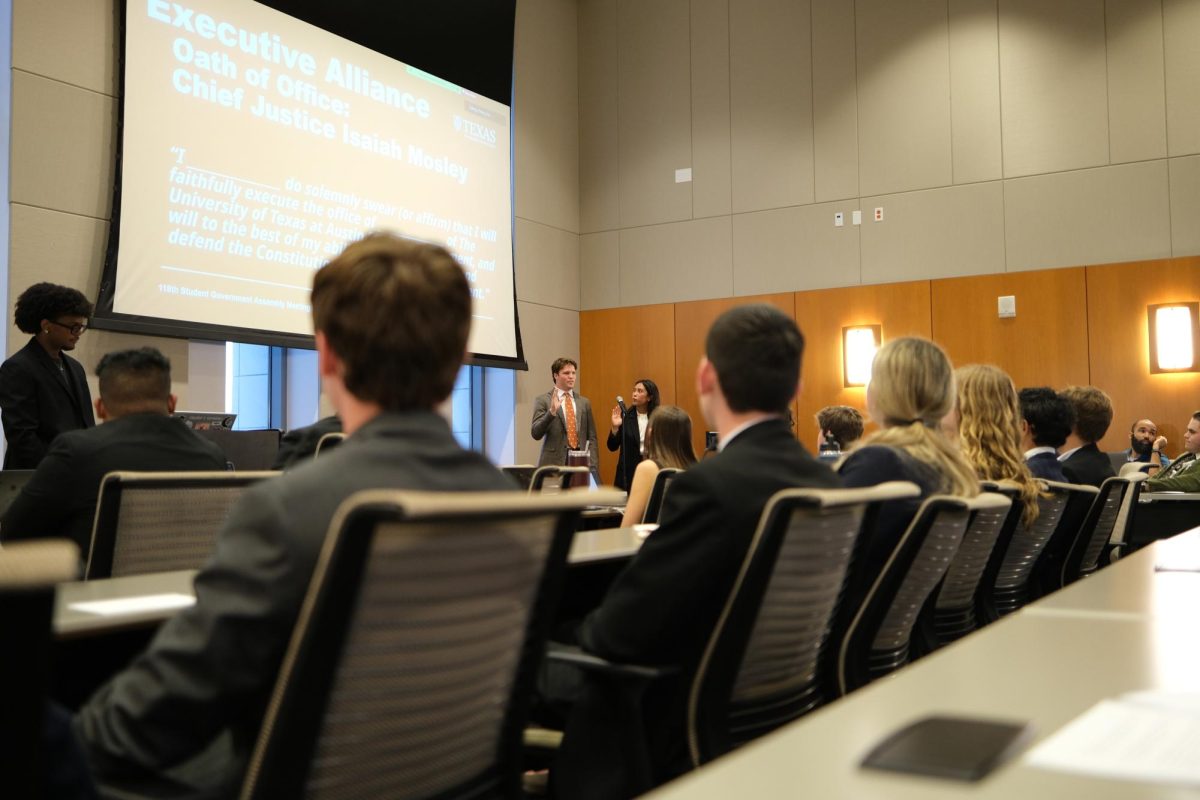The Astronaut Scholarship Foundation awarded a $10,000 scholarship to computer science and mathematics major Ben Braun Monday, said computer science professor Calvin Lin, who helped nominate Braun.
Every year, 26 scholarships worth $10,000 each are awarded to students at the educational institutions that are partnered with ASF, said Beth Higdon. a spokesperson for ASF. She said that the foundation, originally known as the Mercury Seven Foundation, is a way to help keep America at the forefront of science and technology.
Higdon said that the scholarship, awarded to juniors and seniors, is given to only one student from each institution. She said university faculty nominate two students from the natural science and engineering fields for the award and the ASF scholarship committee chooses one recipient.
“To be considered for the award, the student must be performing at the top of their class, be a well-rounded student and be actively involved in lab and research work in their field,” Higdon said.
Braun began researching ways to build Nano scale machines with DNA during the spring semester of his freshman year at the University. The research tries to provide a computer-assisted design tool for Nano scale devices made from polymer DNA, he said.
“As a building material, [DNA] is cheap. It’s robust and reliable,” Braun said. “We’ve discovered we can do quite interesting things with DNA.”
Braun said he harbors a deep passion for science and learning new things. He said his love for science was instilled in him as a child by his parents, both of whom are actively involved with research at the University of Texas Medical Branch in Galveston.
“My father played puzzle games with me since I was young. We played chess a lot and other games that required quite of bit of thinking,” Braun said. “Solving problems always seemed fun to me and science seems like a profession that always lets you solve problems and [gives you] fun puzzles to solve every day and you’re never bored.”
Braun said he knew right away he wanted to be involved with research when he got to the University. He began by working with natural sciences professor Andrew Ellington doing hands-on things but soon switched to computational work, where he contributed much more, Ellington said.
Robert Crippen, former astronaut, UT alumnus and ASF board member presented Braun with the $10,000 scholarship, Lin said.
“[Braun] has had a pretty spectacular academic record in terms of his grades and he’s in the Turing Scholars Program and Dean’s Scholars,” Lin said. “But what really stood out is the impact he’s already had in such a short time.”
Crippen stressed the fact that the award exists to encourage more involvement in research in the sciences, specifically to increase the number of engineers and scientists that this country produces, Braun said.
“I think that such an award, being really large, shows that there’s a strong support for undergraduate research in the United States and in the community,” Braun said.
Printed on Wednesday, September 28, 2011 as: Student wins scholarship with support from faculty


















